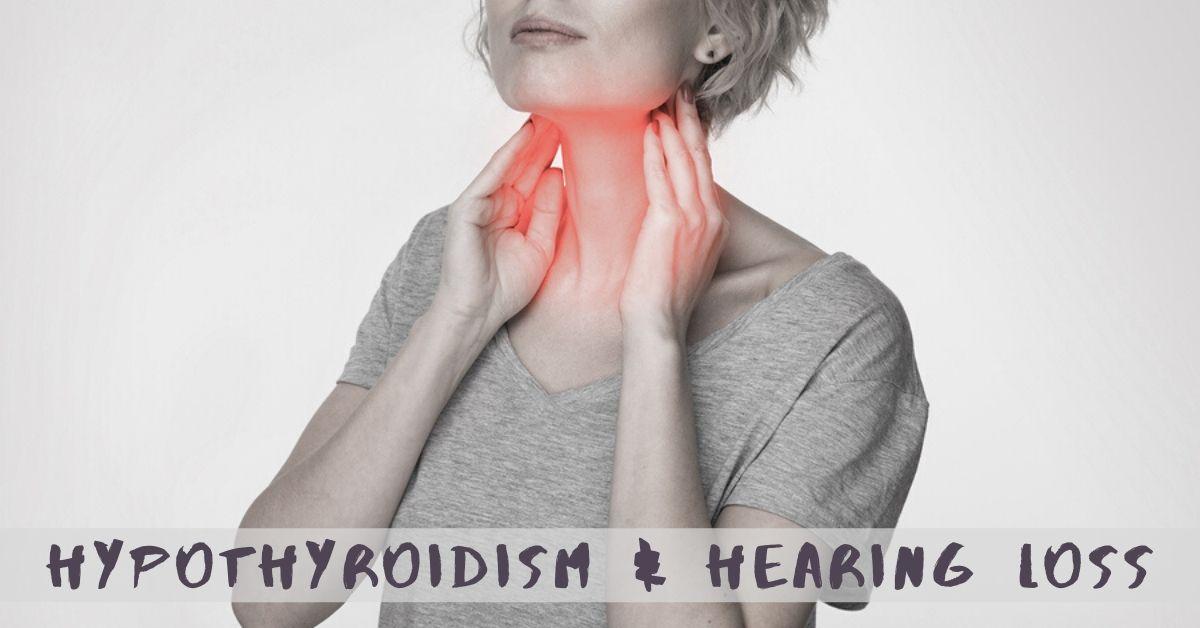
- How Spending Time Outdoors Enhances Hearing Health - July 16, 2024
- Exploring the Impact of Sports on Hearing Health - July 3, 2024
- The Impact of Diet on Hearing Loss - June 28, 2024
January is National Thyroid Awareness month and as we approach the new year, it is good to educate yourself about the connection between hypothyroidism and hearing loss. Thyroid disease can affect many of your body’s functions, including your hearing.
It is estimated that approximately 20 million Americans are living with some form of thyroid disease, but as many as 60 percent are unaware of their affliction. Many of the symptoms can stand alone as medical conditions or be comorbidities of other diseases. This can make it difficult to know one’s diagnosis.
A Healthy Thyroid for Overall Health
The thyroid is a gland that produces hormones that regulate metabolism in the body. It sits below the Adam’s apple, along the front of the windpipe. Its shape is similar to a butterfly and undetectable to the touch when it is its normal size. When the thyroid does not produce enough of the hormone to regulate metabolism, many of the body’s functions slow down significantly.
When there is a disorder or condition of the thyroid, it can greatly affect the body’s essential functions including energy level, heart rate, central and peripheral nervous systems, body weight, and many others. Common conditions of the thyroid include:
- Hyperthyroidism occurs when the thyroid produces too much of the thyroxine hormone. Symptoms of hyperthyroidism include irritability, nervousness, muscle weakness, unexplained weight loss, sleep disturbances, vision problems, and eye irritation. It is not unheard of to experience tinnitus and/or vertigo while suffering from hypothyroidism.
- Hypothyroidism, however, occurs when the thyroid does not produce enough of this hormone. This can cause fatigue, depression, forgetfulness, and weight gain.
- Goiter is a condition wherein the thyroid swells and interferes with breathing and swallowing.
- Thyroid cancer is comparatively uncommon to other forms of cancer. Therefore, it usually responds well to treatment with surgery or radiation. The latter, however, could damage your hearing.
The Thyroid and Your Ears
The World Health Organization (WHO) approximates that 466 million people worldwide are living with disabling hearing loss. About 48 million Americans have some degree of hearing loss (about 20 percent of the U.S. population) and roughly 40 percent of them are younger than 60.
Research is ongoing to find the connection between hearing loss and both hyperthyroidism and hypothyroidism, but they have both been linked to disabling hearing loss. These thyroid conditions are known to affect not only hearing loss, but tinnitus and balance, as well:
- Pendred Syndrome, a genetic disorder that causes early hearing loss in children, also often leads to the development of goiter.
- Grave’s Disease, an autoimmune disorder wherein the immune system attacks the thyroid and causes it to produce more thyroid hormone than your body needs. It is one of the known causes of hyperthyroidism (an overactive thyroid).
- Hashimoto’s Disease, an autoimmune disorder that damages the thyroid gland. It is commonly known as a cause of hypothyroidism (an underactive thyroid).
Radiation treatment for thyroid cancer may cause hearing loss, as studies have shown that patients who undergo radiation treatment for cancers of the head or neck—like thyroid cancer—seem more likely to experience a hearing loss.
Seeking Treatment for Hypothyroidism
If you are experiencing symptoms connected with thyroid disease, consult your medical doctor and ask about the connections between thyroid disease and hearing loss. You should also consult a hearing health care professional to learn how to navigate your hearing health during treatment. Hearing health should not be overlooked when considering your overall health. Better care and attention to your overall health will ultimately benefit your hearing.
Beverly Hills Hearing Center
Getting regular hearing exams, wearing hearing aids, et cetera, is imperative to your good health.
There are many online outlets available to find a hearing health professional near you. Many of these sites also have self-tests you can administer before making an appointment at a doctor’s office. A trained professional, however, is the only way to get an official examination of each ear’s hearing ability. At Beverly Hills Hearing Center, we provide a thorough diagnosis of your results. Afterwards, we can recommend the next steps that will best suit your needs. Hearing aids and cochlear implants are common recommendations. Make an appointment with us today.
